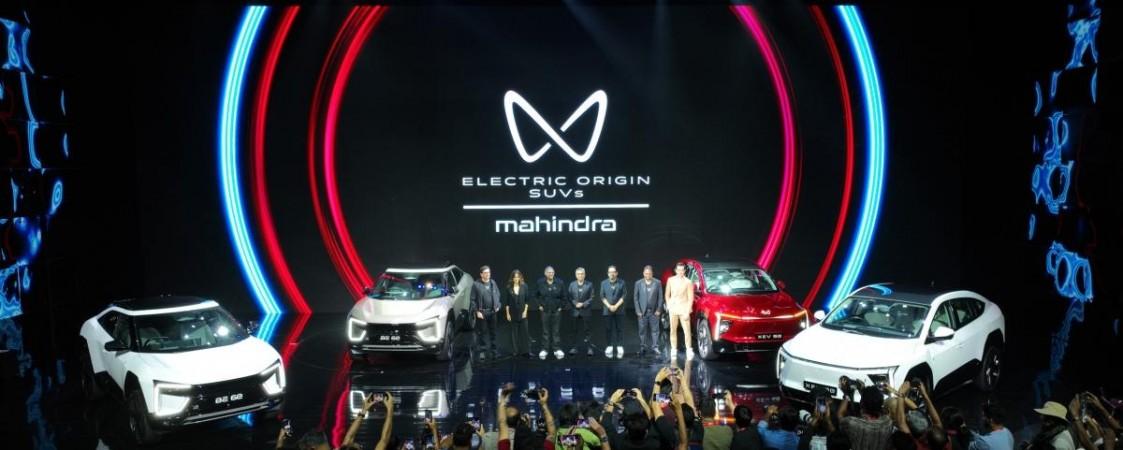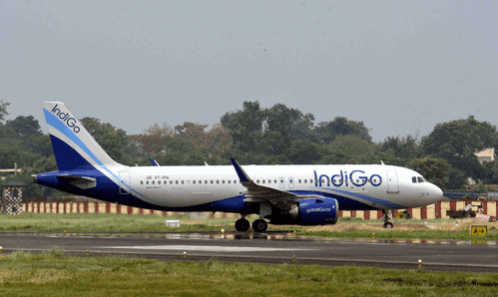
InterGlobe Aviation, the operator of IndiGo airline, has filed a trademark infringement lawsuit against Mahindra Electric. The bone of contention is the use of '6E' in Mahindra's new electric vehicle (EV) SUV, the BE 6e. The case, filed in the Delhi High Court, is scheduled for hearing on December 9.
Mahindra Electric, a key player in the Indian EV market, unveiled its electric origin SUVs, the BE 6e and XEV 9e, on November 26. The BE 6e, in particular, has been at the center of this controversy. The automaker has applied for trademark registration under class 12 (vehicles) for 'BE 6e', a part of its electric origin SUV portfolio.
In response to the lawsuit, Mahindra Electric stated, "We hence don't see a conflict as Mahindra's mark is 'BE 6e,' not the standalone '6E.'" The company further emphasized that their mark differs fundamentally from Indigo 's "6E," which represents an airline, thereby eliminating any risk of confusion.

Addressing the concerns raised by InterGlobe Aviation Limited regarding potential infringement of their goodwill, Mahindra Electric clarified that this was not their intention. The company expressed their willingness to engage in discussions with InterGlobe Aviation to find an amicable solution.
The BE 6e and XEV 9e are the latest additions to Mahindra's EV portfolio in India. The entry-level variants of these models are priced at Rs 18.9 lakh and Rs 21.9 lakh (ex-showroom), respectively. The BE 6e boasts a range of 682 km, while the XEV 9e features a range of 656 kms.
Mahindra Electric has committed to an investment of over Rs 12,000 crore in its EV business. The company is setting up an all-new manufacturing line for EVs at its Chakan plant, which has an installed capacity of 1.2 lakh units per annum.
On the other hand, IndiGo obtained registration for the word mark '6E Link' under classes 9, 35, 39, and 16 about a decade ago in 2015. The airline's legal team, led by Senior Advocate Sethi and supported by Advocates Aditya Gupta, Mukul Kocchar, and Chhavi Tokas from Ira Law, is seeking relief from the IP division of the Delhi High Court.
Trademark protection in India is primarily governed by the Trade Marks Act, 1999, and the Trade Marks Rules, 2017. A trademark is a distinctive sign, symbol, logo, name, or combination thereof that identifies and distinguishes goods or services of one enterprise from those of others in the marketplace. The registration of a trademark grants the owner exclusive rights to use the mark in relation to the goods and services for which it is registered.
However, Indian trademark law follows the principle of different classes where protection is typically limited to the specific classes under which the mark is registered. This means a trademark registered for airline services may not automatically prevent its use in automobiles, unless it qualifies as a well-known trademark or there's a legitimate likelihood of consumer confusion.
As the case between IndiGo and Mahindra Electric unfolds, it will be interesting to see how the Delhi High Court interprets the law in this context. The outcome could potentially set a precedent for future trademark disputes between companies operating in different sectors. This is not the first time that companies from different sectors have locked horns over trademark issues. In 2012, Apple Inc. and Proview Technology engaged in a legal battle over the 'iPad' trademark in China. In 2019, a similar dispute occurred between PayPal and Pandora over the use of the letter 'P' in their logos. These cases highlight the importance of thorough trademark research and the need for clear communication between companies to avoid such conflicts.








